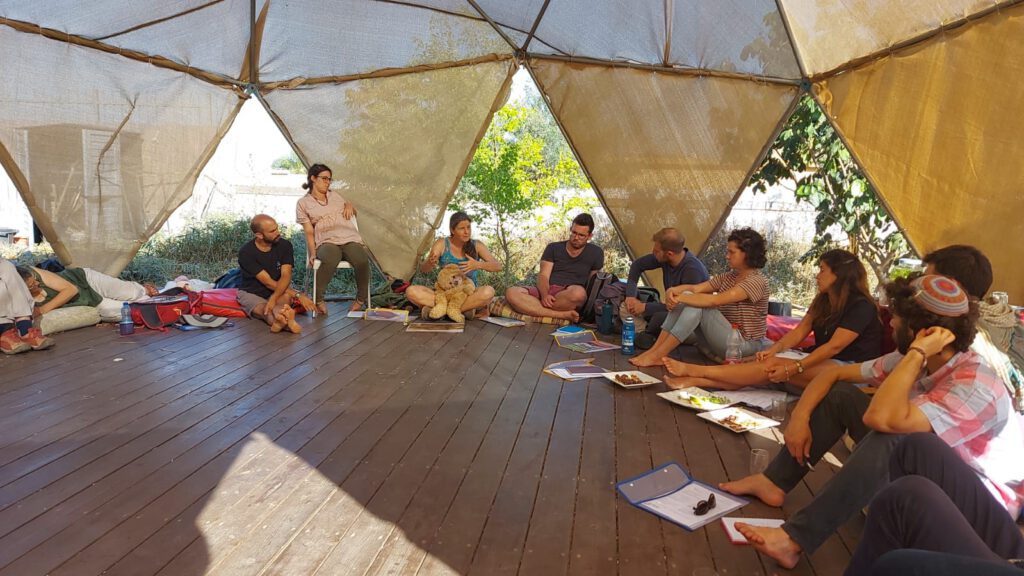A joint local leadership initiative of the Sapir Center and ‘The Israeli Shmita Initiative‘, that advances projects promoting social resilience in the community, in the spirit of the Shmita year.
The incubator operated during the sixth year of the seven-year Shmita cycle when, according to tradition, preparations are made for the following Shmita year. Nineteen participants studied together in six sessions that included learning the sources of the Shmita and the values it represents, familiarization with social-environmental issues (with an emphasis on those that relate directly to today’s challenges), and meetings with people active in this field to receive inspiration for social agriculture-related activism.
The seventh meeting was a joint hackathon during which projects were planned, expressing the incubator’s ideas in communities across Israel
Goals
- To promote meaningful community action while connecting to Jewish-Israeli identity and culture.
- To build a network of social-environmental activists with an Israeli Judaism approach to develop and advance this field.
- To strengthen awareness of the Hebrew calendar, while emphasizing the Shmita year as the “pinnacle” of values such as social involvement, environmental awareness, a sense of community.
Target Audience
Agents of change in Israeli society (primarily young people), from all parts of the country with diverse Jewish backgrounds.
Expected Outcomes
The hackathon participants developed various community initiatives for the Shmita year. A selection of the initiative appears below:


